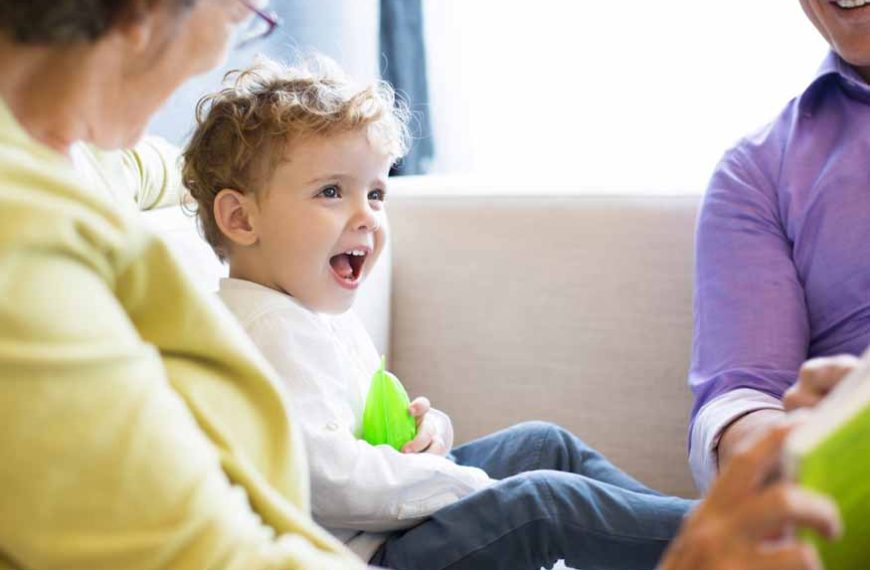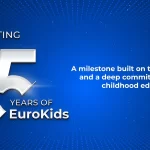Learning to talk is a big adventure for toddlers! It’s like going from making cute baby sounds to talking like grown-ups. But sometimes, toddlers might forget some words they knew before. It’s like the words play hide-and-seek!
Let’s find out why this happens and how we can help them. It’s like being a language superhero! We’ll learn about the reasons why some toddlers forget words and discover cool ways to help them talk even better. Get ready for a fun journey into the world of toddler talk!
Understanding Toddler Speech Regression
Sometimes, when little kids suddenly forget some words they knew before, it’s called “toddler speech regression.” It might sound a bit scary for grown-ups, but it’s important to look at it in a balanced way. There are different reasons why this happens, and it’s like putting puzzle pieces together to help the little ones. Understanding why it’s happening helps the grown-ups give the right help. So, when you notice this, don’t worry too much, just try to figure out what’s going on, and you can help the little ones get back to talking and playing like before!
Causes of Toddler Speech Regression
- Underlying Medical Conditions:
- Environmental Factors:
- Emotional Factors:
- Developmental Milestones:
- Speech Delay:
Sometimes, when you’re talking, it might get a bit tricky, like your words playing hide-and-seek. This could happen because of things like ear infections, not hearing well, or how your brain works. It’s like a puzzle! Talking to a super-smart doctor is really important. They can help figure out if there’s anything going on with your ears or brain. It’s like having a superhero team to make sure everything is okay. So, talking to a doctor is a big, brave step to solve the talking puzzle and make sure you’re all good!
When toddlers have new things happening around them, like getting a new brother or sister, moving to a new house, or if their mom or dad feels a little stressed, it might make them talk differently. Toddlers are like little sponges, and when things change, it can sometimes make it tricky for them to say all the words they know. So, it’s important to be extra understanding and patient with them while they figure out how to talk about everything in their new world.
Sometimes when kids feel really, really upset or worried, they might have a hard time talking like they usually do. It’s like their words get a little stuck because their hearts are feeling lots of feelings. To help them, we can make sure they’re in a cozy and caring place where they feel safe. That way, they might find it easier to say what’s on their minds and feel better. It’s like giving them a big warm hug for their words!
Sometimes, little kids might start talking less because they’re busy focusing on other cool stuff like learning to run or making new friends. It’s like their brains are having a party, and talking takes a little break. But don’t worry, it’s just a phase where they’re super into doing other fun things! They’ll start chatting again when they’re ready. It’s like when you pause a game but then come back to play even better!
Sometimes, if you notice your talking getting a bit tricky, it might mean there’s something going on with your words. It’s like your mouth is trying to figure out how to talk better! Knowing what words you’re supposed to say when you’re little is super important. That way, you can tell if it’s just a little mix-up for a while or if it’s something that needs more attention. Keep an eye on it, and soon your words will be back to normal!
Supportive Strategies for Toddler Speech Regression
Once the causes are identified, implementing supportive strategies becomes vital in aiding a toddler’s return to regular speech development. Here are effective strategies for parents and caregivers to consider:
Speech Therapy for Toddlers at Home
- Create a Language-Rich Environment:
- Consistent Routine:
- Encourage Play-Based Learning:
- Use Visual Aids:
- Limit Screen Time:
Put lots of cool things around the little kid, like books, music, and talking with them. Hearing different words and sounds helps them learn to talk better. It’s like having a bunch of fun friends that teach you new words every day!
Having a routine every day is like having a superhero plan for toddlers. It makes everything feel safe and not wiggly. When we know what happens next, it’s like magic that makes us feel good and not scared. So, having a plan helps us talk better and feel happy!
Play fun games that help you talk better! Like, make up stories together, pretend you’re different characters, and use your imagination a lot. These games make your words and talking skills super strong and cool!
Okay, so if you wanna help little kids learn words, you can use cool things like flashcards or picture books. It’s like having secret helpers to make learning super fun! Pictures are like friends that show you what words mean. For tiny kids who like looking at stuff, these picture things are extra awesome.
Watching too much stuff on screens might make it tricky to talk well. It’s like, if you’re always looking at screens, you might not learn to talk as good. So, try to talk and play with real people instead of just staring at gadgets. It’s more fun and helps you talk better!
Toddler Developmental Milestones
- Monitor Developmental Progress:
- Promote Social Interaction:
- Read Aloud:
- Provide Positive Reinforcement:
Remember to keep an eye on your little one’s growing-up moments! Visits to the doctor are like superhero check-ups to make sure everything is going great. If there’s anything that needs a little fixing, the doctor can help right away. So, don’t forget to see the doctor sometimes to make sure your toddler is growing up strong and awesome!
Play and talk with friends, brothers, sisters, or grown-ups! Having fun with others helps us learn how to talk better and gives us chances to practice talking and sharing our thoughts. So, let’s have lots of playtime and chit-chat with everyone around us!
Reading books out loud to little kids is like opening a door to a land of awesome words and cool stories! Pick books that are just right for their age and have lots of bright pictures to make them super interested. It’s like having a magical adventure with words and pictures!
When they try to talk, give them a big high-five or a super-duper thumbs up! Let them know they’re doing an awesome job with words. When you cheer them on, it makes them feel super happy and excited to keep talking and getting even better at it. So, let’s all clap and cheer for our talking superstars!
In conclusion, understanding the causes of toddler speech regression and implementing supportive strategies are crucial steps for parents and caregivers. Patience, consistency, and a holistic approach to a child’s well-being are key elements in navigating speech challenges. If concerns persist, seeking guidance from healthcare professionals and speech therapists is recommended.
If you’re looking for a nurturing environment that supports your toddler’s developmental journey, consider EuroKids. Our dedicated team understands the importance of early childhood education and provides a stimulating atmosphere for holistic growth. Visit our website to explore our programs and facilities. Your child’s journey to language development begins here at EuroKids.


















